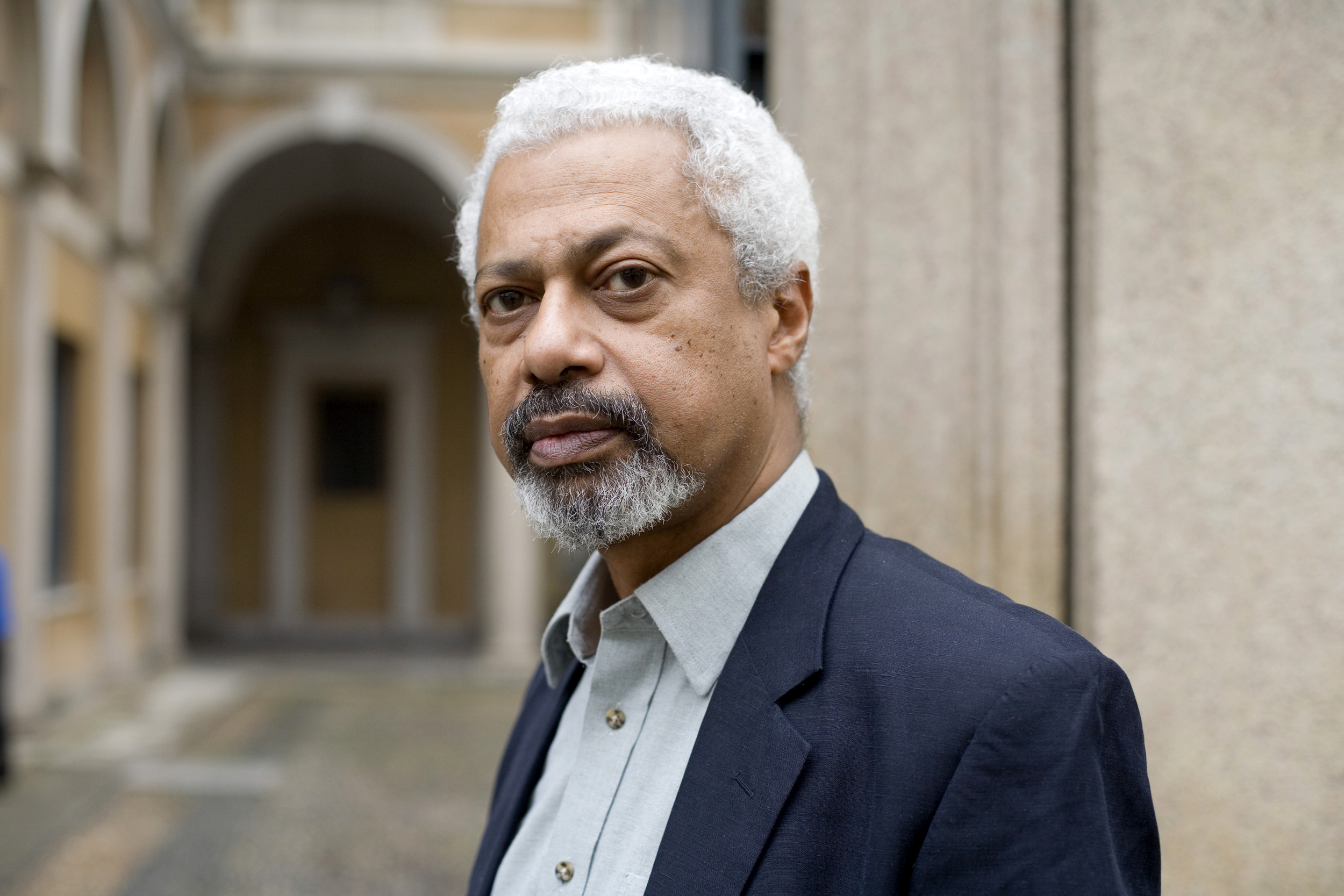
The 2021 Nobel Prize for Literature has just been awarded to Tanzanian novelist Abdulrazak Gurnah. He is the seventh African to receive this honor.
The announcement was made earlier today October 7, 2021, after a closed-door deliberation by members of The Swedish Academy.
The news has sparked untold joy in the African literary community, with authors and readers posting celebratory comments on social media. “The Nobel returns home,” writes Nobel Laureate Wole Soyinka in his email message to us. He adds:
It so happens that this has been a period of extensive interviews and cultural encounters for me across continents. And my easiest question has always been in relation to the Arts, especially after being obliged to concede the bleak truths over a continent in permanent travail. To be able to respond that the Arts – and literature in particular – are well and thriving, a sturdy flag waved above depressing actualities by a young, confident generation has always made those conversations bearable, even combative. Now, unquestionably, my audiences will find themselves compelled to admit that I do not exaggerate. May the tribe increase!
According to the official citation, Gurnah was awarded “for his uncompromising and compassionate penetration of the effects of colonialism and the fate of the refugees in the gulf between cultures and continents” in line with the ideals of Alfred Nobel, for whom the prize is named after.
The citation is largely true for Gurnah’s body of work. His latest novel Afterlives, in particular, follows the lives of two young men Ilyas and Hamza, one stolen and the other sold, and how their lives are intertwined in the age of German colonial occupation.
His fourth, Paradise, surmised by critics as a push back to Joseph Conrad’s Heart of Darkness, tells the story of a boy Yusuf who is pawned out as a servant in exchange for his father’s debt. The novel was shortlisted for the 1994 Booker Prize and the Whitbread Award. Reportedly, it was also the determining novel for Gurnah’s Nobel Prize win.
This news is historic for many reasons. Gurnah is the first black African writer in 35 years to win the prize since Nigeria’s Wole Soyinka in 1986, the first black writer since US’ Toni Morrison in 1993, and the first African writer since Doris Lessing’s 2007 win.
His win also comes as a (delightful) surprise. Gurnah had not appeared on any major pre-announcement speculations list, as had, for instance, the Kenyan writer Ngugi wa Thiongo, the American novelist Joyce Carol Oates, and the Japanese-American Hariuki Murakami.
Gurnah himself, who had been in his kitchen when he was informed of his win, said he assumed it was a prank. He told the Swedish Academy correspondent in call posted on youtube, “These things are usually floated for weeks beforehand, or sometimes months beforehand, about who are the runners, so it was not something that was in my mind at all. I was just thinking, I wonder who’ll get it?”
Born in Zanzibar (now Tanzania) in 1948, Abdulrazak Gurnah emigrated to Britain to escape persecution of Arab citizens during the Zanzibar revolution. He earned a doctorate degree at the University of Kent in 1982, and ventured into an academic career that spanned Britain and Nigeria.
Hailed as one of Africa’s greatest living literary giants, his impressive body of work range from essays, short stories and ten novels, including the Booker-longlisted By the Sea (2001), and, most recently Afterlives, which was longlisted for the Walter Scott Prize for Historical Fiction. Based in the UK, he maintains firm links with the African literary space, serving as contributing editor for Wasafiri Magazine since 1987. He has also served on the judging panel of the Caine Prize and Booker Prize. In August, he was announced as headliner for the 2021 Ake Festival.
Gurnah’s editor Alexandra Pringle at Bloomsbury said she was thrilled for Gurnah to get the recognition that, it seemed, he had been long denied. She describes him as a writer “as important as Chinua Achebe” with a writing style that was “particularly beautiful and grave and also humorous and kind and sensitive.”
Gurnah will receive a cash prize worth 10m Swedish krona (USD 1,139,186), in addition to a gold medal and a diploma. He also joins the rare and elite class of African literature Nobel laureates, which include Algeria’s Albert Camus (1957), Nigeria’s Wole Soyinka (1986), Egypt’s Naguib Mahfouz, the South Africans Nardine Gordimer (1991), J.M Coetzee (2003) and Doris Lessing (2007).
Big big congratulations to Abdulrazak Gurnah.









Ashoke Basu October 13, 2021 04:57
This is extraordinary! An African black has got the literary novel after 35 years. But the only thing that still irks me four English Nobel in six consecutive years! What about other languages!